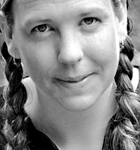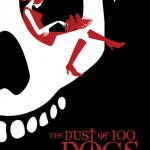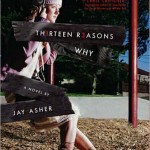Welcome to the first installment of Flux Friday—a segment on this blog that will have all things Flux. I am very excited to launch with A.S. King, author of the intriguing and thought-provoking THE DUST OF 100 DOGS (Flux, February 2009). Visit Amy’s website www.as-king.com for all your unanswered questions.


1. DUST OF 100 DOGS is nearing its 1 year birthday. What has this first year of publication been like? Highs/lows? Surprises? And will you be throwing D100D a birthday bash, perhaps getting Saffron a small gift?
You know, I never thought of it that way before. But yes, the book is having its 1st birthday on February 1st, 2010. I probably won’t throw it a party or buy it a gift, but I may shout “Hooray!” at it and have a beer, now that you’ve reminded me.
The first year has been great. Highs were many, lows were few. I travelled a lot and met so many interesting people. I’d always wondered if my shy side would be able to handle public speaking and I seemed to do just fine. People laughed at my jokes, and I found that I quite like interaction with an audience. A bit of a surprise for a woman who lives in a virtual cave and rarely leaves it. Outside of that, it was a busy year—about a month after D100D came out, I sold my next book, and the month after that, I started writing the next one.
2. Has your writing process changed at all since this book has been published? I struggled trying to think of a book two idea and then once I had the idea, went through some kind of writing-induced paralysis before finally putting words on paper. Did you experience anything like this? If so, how did you get through it? If not, what’s your secret? 🙂
The Dust of 100 Dogs was written quite a while back, so by the time it was published, I’d written three or four more books. But I did go through an interesting short phase of what-the-hell-am-I-doing? right after the book sold, and that phase started my series called “The Writer’s Middle Finger.” If you’re a bit stuck going for number two, you need to read this. Once you read it, you will understand my secret. (Hint: Stretch it.)
3. I liked what you said in an interview about YA books—how the genre is open to interpretation, how it need not be pigeonholed as one specific thing. That said, I think a big theme in YA is the search for identity. In D100D, I felt Saffron struggled with this more than most characters—on a literal and metaphorical level. Did you see this as a large theme in the novel and something to explore/focus on or is it something that emerged as you were writing?
I think Saffron was most concerned with escape or the physical maturity required for her escape (turning eighteen and graduating high school.) I think escape is a major theme in the book for many characters. Her identity is a more intricate study than most characters, because she is, essentially, one hundred brains in one. On the more metaphorical side—aren’t we all? Aren’t we all an amalgam of our experiences mixed with others we’ve watched throughout our lives, and their experiences? Perhaps Saffron exists as a metaphor for all of this, then—identity, escape and maturity.
4. And, continuing my train of thought from question three…. Do you think Saffron creates a whole new self in the end, maybe a combo of both Saffron and Emer, or do you see her shedding both identities and just living her new life wherever it takes her?
I’ve always seen these two women as two different women. I mean, logically, Emer was born and died in the 17th century and Saffron was born in the US in 1972. They both had a different set of parents. But they were nothing alike. Saffron wasn’t out to kill everyone she saw. Sure, she thought about it because Emer’s experience was in her brain and she was a frustrated 300-year-old in a world full of pointless noise, but she didn’t do it. Even in the end, Saffron was out of her element when she had to defend herself on a basic level. She’d grown too much in three hundred years to act like Emer had once acted. But, to answer the question. Who can shed their own identity? Saffron is Saffron. Once the final page turns, her life is still her life. Her mother and father are who they are. Her memories are a mix—the same as when she was born. The only thing she truly shed was the curse of greed she was born with. And now, she has to get on with her life, like any of us would. Lucky for her, she found something more valuable in the process.
5. Flux editor, Brian Farrey, has said that he’d love to package your marketing skills and sell them. What are some marketing tips you can give authors?
I think it’s funny that someone like me can reach out as much as I do. I live in semi-seclusion as I have for a long time. I don’t have any money to throw around, and I have little kids to raise and feed, so my every minute isn’t here at the desk. When I was a kid, I dreamed about things like videophones and computer modems. And now, here they are—all sorts of gadgets and services to allow someone like me to spread the word about my book to more people than I can count. When you stop to think about it, the internet is a mind-blowingly amazing thing. I’m not so sure I’ve got great marketing skills, but I know I’m a complete geek, and this stuff just comes naturally to me.
If I had tips, they’d read like this. #1. Use the internet as much as you can. It’s free. #2. Be yourself and don’t do anything that you hate doing (even if it interferes with tip #1.) #3. Be real. The internet is not a billboard. #4. Be nice. Nice matters.
6. Your next book will not be published by Flux, although I’m certain it’s great anyway. 🙂 Can you tell us a little about it and what lies ahead for you?
My next book comes out with Knopf in October 2010. It’s called PLEASE IGNORE VERA DIETZ and it’s about a girl who is trying to clear her dead (ex) best friend’s name. I’m about to unveil cover art any day now, so stay tuned. The next book is [presently] called EVERYBODY SEES THE ANTS, and if you’d all cross your fingers for me, we’ll see if we can get that one to you the following year.
7. Anything you always wished an interviewer would ask you? We ask all these pesky business and writing questions but I bet you’re dying to tell us why you love fluffernutter sandwiches, right ?
You know, I do love Fluffernutter sandwiches. I love them so much, that when I was expecting my first baby, my parents sent me a care package containing a case of peanut butter and a case of marshmallow crème, which I couldn’t get in Ireland. (That’s 12 jars each.) But that wasn’t the question was it? Hmm. How about this: Hey Amy, how long after receiving that care package did it take you to get completely sick of Fluffernutter sandwiches? Answer: About six months. I still can’t eat them.

